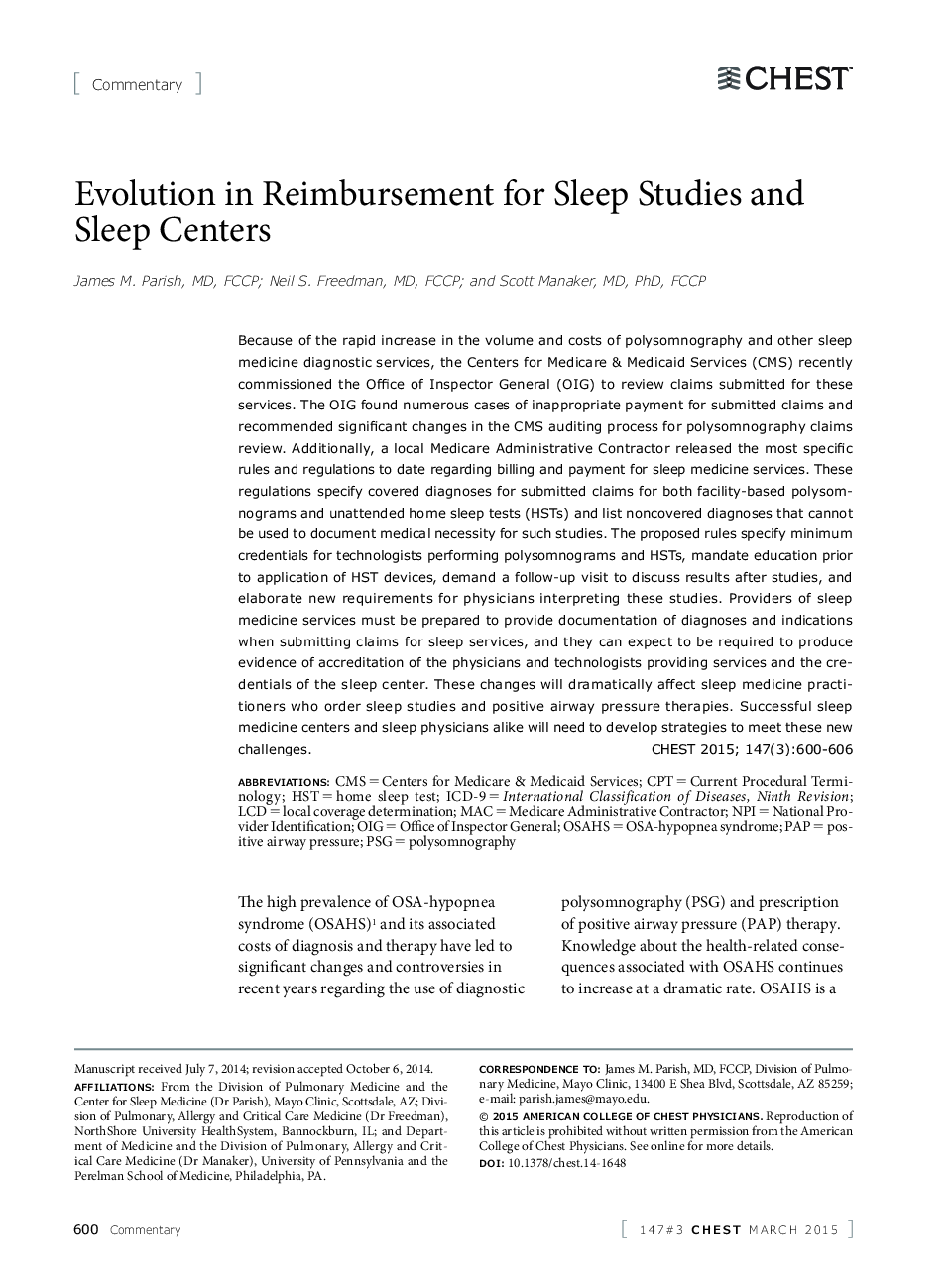| Article ID | Journal | Published Year | Pages | File Type |
|---|---|---|---|---|
| 2899751 | Chest | 2015 | 7 Pages |
Because of the rapid increase in the volume and costs of polysomnography and other sleep medicine diagnostic services, the Centers for Medicare & Medicaid Services (CMS) recently commissioned the Office of Inspector General (OIG) to review claims submitted for these services. The OIG found numerous cases of inappropriate payment for submitted claims and recommended significant changes in the CMS auditing process for polysomnography claims review. Additionally, a local Medicare Administrative Contractor released the most specific rules and regulations to date regarding billing and payment for sleep medicine services. These regulations specify covered diagnoses for submitted claims for both facility-based polysomnograms and unattended home sleep tests (HSTs) and list noncovered diagnoses that cannot be used to document medical necessity for such studies. The proposed rules specify minimum credentials for technologists performing polysomnograms and HSTs, mandate education prior to application of HST devices, demand a follow-up visit to discuss results after studies, and elaborate new requirements for physicians interpreting these studies. Providers of sleep medicine services must be prepared to provide documentation of diagnoses and indications when submitting claims for sleep services, and they can expect to be required to produce evidence of accreditation of the physicians and technologists providing services and the credentials of the sleep center. These changes will dramatically affect sleep medicine practitioners who order sleep studies and positive airway pressure therapies. Successful sleep medicine centers and sleep physicians alike will need to develop strategies to meet these new challenges.
